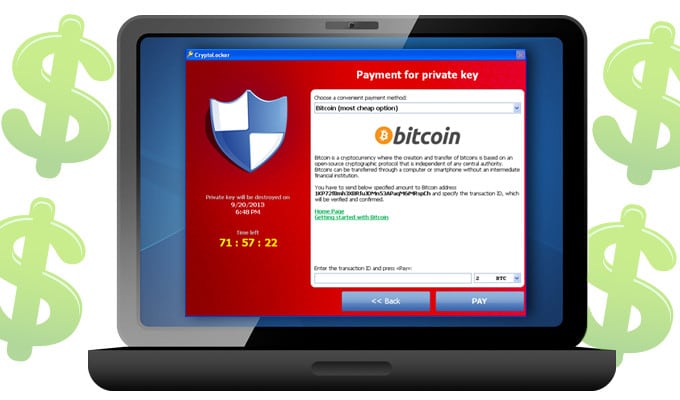
Someone clicks a suspicious link and the next thing they know, they’re looking at a screen demanding ransom for the recovery of their files. It could happen to anyone but this time the victims were policemen from the state of Maine: local TV station WCSH-TV broke the news recently of how ransomware managed to infect the shared network of the Lincoln County Sheriff’s Office.
The officers were not quick to budge and their IT department tried to tackle the “megacode” virus on their own, but after days of work the only alternative to paying would’ve meant formatting their systems and so “Burguess Computer”, the company that handles their computer security, ended handling the $300 in Bitcoins payment on their behalf to recover their data.
Police Chief Ron Young had this to say when questioned by the TV station:
“We needed our programs to get back online, and that was a choice we all discussed and took to get back online to get our information.”
After the event, which took place in March, the FBI became involved to track down the people behind the rogue program, but they seem to have hit a dead end after tracing the Bitcoin transactions to a private Swiss bank account.
Lincoln County Sheriff Tod Brackett had this to say about the incident:
“No personal data was mined – it looks like they didn’t take any information. We had to pay the ransom, but it looks like nothing was extracted from the server.”
“Paying a ransom – let’s say it goes against the grain. We tried to find a way around it, but in the end our IT guys and Burguess recommended just paying the ransom.”
“We’ll have more virus protection training where we go over how to tell if something might be a virus, … Sometimes it’s hard to tell, but you’ve got to keep an eye out for some of these documents that people e-mail you. Sometimes it can be hard to tell if it contains a virus.”
This isn’t the first time that US police has been hit by ransom ware though: on February of this same year a Chicago Police Department paid a $500 ransom in Bitcoins, a village called Midlothian in the Chicago area also reported being hit in January and paid an undisclosed sum and Massachusetts policemen admitted to having paid a ransom of 2 Bitcoins on 2013 (which at the time would’ve been worth an equivalent of approximately $1330).
It’s worth noting that these kinds of programs don’t seek to target specific users for the most part (unless you’ve managed to piss off a Russian hacker lately), but rather infect as many computers as possible in order to maximize their profit, so it’s unlikely that police departments are being specifically sought out.
For more information related to ransomware, check out these past articles by our writers:
500 Bitcoin Ransom, Entire School District Shut Down
New Bitcoin Ransomware, CTB Locker, uses Tor Network to Remain Anonymous







